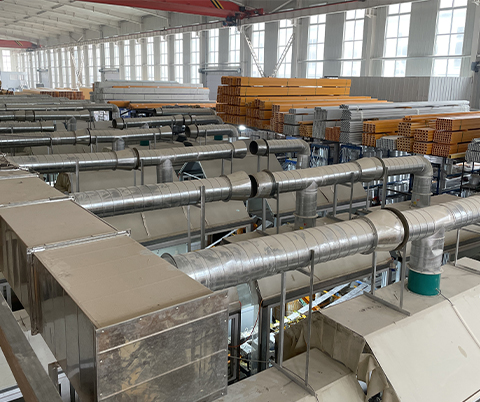loading...
- No. 9, Xingyuan South Street, Dongwaihuan Road, Zaoqiang County, Hengshui, Hebei, China
- admin@zjcomposites.com
- +86 15097380338
- Welcome to visit our website!
High-Quality FRP Softener Vessel for Efficient Water Treatment
Understanding FRP Softener Vessels Importance and Applications
Fiberglass Reinforced Plastic (FRP) softener vessels have gained significant attention in water treatment and industrial processes due to their unique properties and advantages. Unlike traditional steel or concrete vessels, FRP softener vessels offer a combination of strength, durability, and resistance to corrosion and chemical attacks, making them ideal for various applications.
What is an FRP Softener Vessel?
An FRP softener vessel is a cylindrical container made of fiberglass reinforced plastic designed specifically for water softening processes. Water softening is the removal of calcium, magnesium, and other minerals that cause hardness in water. This process enhances the water quality and prevents scale build-up in pipes and appliances, extending their lifespan and improving efficiency.
Advantages of FRP Softener Vessels
1. Corrosion Resistance One of the most significant benefits of FRP vessels is their resistance to corrosion. Traditional metal vessels can corrode over time when exposed to harsh chemicals or saline environments. In contrast, FRP vessels maintain their integrity, ensuring long-term usability and reducing maintenance costs.
2. Lightweight Yet Strong FRP is much lighter than steel or concrete, making installation and transportation easier. Despite their lightness, FRP vessels are strong and can withstand high pressure, making them suitable for various industrial applications.
3. Customizable FRP softener vessels can be manufactured in various sizes and shapes to meet specific requirements. This flexibility allows for the design of systems tailored to the needs of different industries, ensuring optimal performance.
4. Lower Thermal Conductivity FRP has lower thermal conductivity compared to metal vessels. This property helps maintain the temperature of the water inside the vessel, which can be particularly beneficial in processes requiring specific temperature ranges.
frp softener vessel

5. Cost-Effectiveness Although the initial investment in FRP vessels might be higher than that of traditional options, their longevity and lower maintenance costs contribute significantly to the overall cost savings in the long run.
Applications of FRP Softener Vessels
FRP softener vessels are utilized across various sectors, including
- Municipal Water Treatment Many municipalities use FRP vessels for water treatment facilities, ensuring the delivery of softened water to homes and businesses.
- Industrial Applications Industries such as food and beverage, pharmaceuticals, and electronics rely on high-quality water for their processes. FRP softener vessels help maintain the water quality necessary for these applications.
- Agriculture Farmers use softened water for irrigation to prevent salt build-up in the soil, which can hinder plant growth.
- Commercial Facilities Hotels, restaurants, and commercial laundry operations benefit from softened water to enhance the effectiveness of soaps and detergents, leading to better cleaning results.
Conclusion
As demand for efficient and effective water treatment solutions continues to grow, FRP softener vessels stand out as a reliable option. Their benefits—ranging from corrosion resistance to lower maintenance costs—make them an essential component in modern water treatment systems. By choosing FRP technology, industries can ensure optimal performance, sustainability, and enhanced water quality, ultimately contributing to a healthier environment.
-
Premium FRP Handrail for All ApplicationsNewsAug.29,2025
-
Low Maintenance FRP Mini Mesh Grating ProductsNewsAug.29,2025
-
Innovative FRP Square Tubes for Modern Industrial SolutionsNewsAug.29,2025
-
FRP Water Storage Tanks Wholesale Solutions for Bulk BuyersNewsAug.29,2025
-
FRP Molded Grating Solutions for Diverse Industrial ApplicationsNewsAug.29,2025
-
Construction Advancements Through FRP Pultruded ProfilesNewsAug.29,2025
-
Why Choose FRP Railings, Guardrails, and Handrail Systems?NewsAug.29,2025
